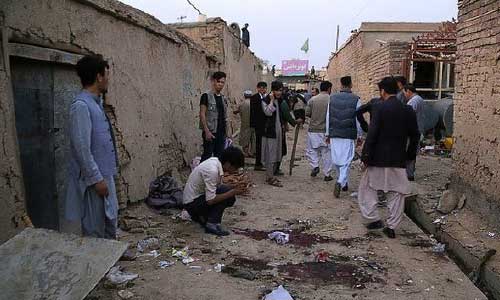According to Article 2 of the 1948 United Nations Convention on the Prevention and Punishment of the Crime of Genocide, genocide is defined as any acts with intent to destroy, in whole or in part, a national, ethnical, racial or religious group, as such: killing members of the group; causing serious bodily or mental harm to members of the group; deliberately inflicting on the group conditions of life, calculated to bring about its physical destruction in whole or in part; imposing measures intended to prevent births within the group; [and] forcibly transferring children of the group to another group. Under most legal constructions of genocide (e.g., under the statutes for the International Criminal Tribunals for the Former Yugoslavia and for Rwanda), liability for genocide extends to those who planned, instigated, ordered, committed or otherwise aided and abetted in the planning, preparation or execution of one or more of the aforementioned genocidal acts. On the basis of the mentioned law provision, the leaders could also be held accountable for the criminal actions of their subordinates if they knew or should have known about the actions and failed to prevent or punish them.
Given the above definition of the genocide, the yesterday’s attack which carried out in west of Kabul on Hazara ethnic group which left more than a hundred civilians including nearly 30 students deaths and 70 other injuries, seems to be meant as a genocide. However, the specialized dimension of this discussion should be left for the law experts but as these types of attacks repeatedly happened on certain group of civilian, especially on Hazara students, which are considered as core part of a community, might be explained by genocide law. Thus, it seems more questionable when we see such tragic carnage have been frequently carried out on a defenseless group of people in presence of international community including united nation agencies, humanitarian orgs and a legitimate government in the country. Based on some elements of the mentioned law, it seems that most of the national and international sideliners cannot easily exculpate from such tragic event in the country. Even, when any human in any part of the world are collectively killed because of their race or religion, we must not keep watching as a human.
This is not the first time that the government attributed similar event to the Taliban while the Taliban refuse the allegation but the so-called Islamic State claimed the responsibility without providing evidence. On other hand, most experts doubt about existence of Islamic State in the country because it has no social and political ground in the country. When all actors including Taliban, government, international stakeholders and people do not accept them in the country, how can they survive or take root in the country. It is not enough that national and international forces perform their humanitarian and political responsibilities with giving tiring condolences to the families of the victims while the people should wait for another genocidal event in next weeks or months. Unfortunately, this tragic cycle is a Never-Ended issue in Afghanistan.
Undoubtedly, all parts of the country are engaged with insecurity, but the west of Kabul and in particular Hazara minority group has experienced successive massacre without satisfactory investigation or punishment of the perpetrators. Therefore, this event raised a lot of questions and worries about sectarian conflicts in national level because the genocidal event has frequently repeated on certain group all along the history, especially in last two decades. For example, in July 2016, at least 80 Shia Muslims were killed in two bomb blasts attributed to Daesh. In November of the same year, at least 27 people were killed after a large bomb explosion hit a Shia mosque in the Afghan capital. During last election, nearly70 people were killed including five children, 21 women and nearly 120 others wounded in the attack, which was carried out at the doorway of an identity card distribution and voters registration center in Kabul’s Dasht-e-Barchi area.
In 2018, about 50 students were killed while 67 other injured in a similar attacks on an educational center in west of Kabul. According to a UNAMA report at that time, “direct attacks against the Shia population” caused “154 civilian casualties (49 deaths and 105 injured)” during the first three months of 2018 and “nearly all” of these were attributed to “suicide and complex attacks claimed by” the so-called Islamic State’s Khorasan province. Unlike other places, in west of Kabul, the attacks are carried out deliberately and repeatedly on civilians. About two months ago, they had attacked on a midwifery health center in west of Kabul where killed many women and new born babies. As a result, the health services were stopped in west of Kabul, and similarly thousands of girls and boys are left education and country due to consecutive attack on educational centers.
Eventually, it is high time that both government and the international allies respond to such events with action, not words. The failure or negligence of security forces to prevent such incidents is not acceptable. The behaviour and justifications of security officials extremely disappointed people. So many times they established special committee promising to report their performance but non-has been fulfilled yet. On the other hand, the international community must not keep watching while they have come to Afghanistan based on certain agreement and commitment. Unfortunately, the main victims are poor class of people whereas many of the upper class families are not inside the country. No one knows how long the unlucky people of Afghanistan should block their pain of bloodshed and hunger with use of opium or paregoric condolence of the responsible authorities.

